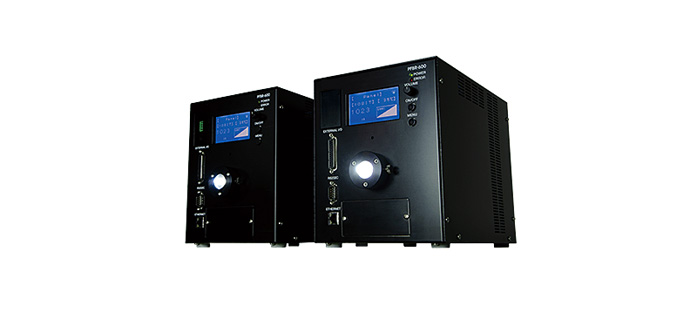CCS stelt updates 2019 voor
 LFXV: Flat Dome Lights
LFXV: Flat Dome Lights
The LFXV is a newly developed thin and lightweight light-guiding plate to reduce image irregularities and creates a bright and clearly inspectable field of view. What’s new about this version?
- A new laser engraving technology (instead of a dot pattern) provides clearer images
- A thinner, reworked housing (now 10mm thick)
- Increased intensity • Higher Uniformity
- 16 models in 4 different sizes are available in 4 different LED colors (red, white, blue, IR).
 LFX3 Series
LFX3 Series
Improvements in comparison to previous version:
- Increased intensity
- Completely reworked housing with dded mounting holes
- New standard sizes: 25x25mm and 200x100mm
- Blue added to standard models
 HLV3 Series
HLV3 Series
Successor of the HLV2 Spot Light Series. New in the HLV3:
- Increased intensity
- Newly designed housing for easy installation
- More (new) models added to the standard lineup: 3W-type is now standard; 4W-type is now available; IR860 version is now standard
 FPQ3: Low-Angle Square Lights
FPQ3: Low-Angle Square Lights
These low-angle, high-output lights are put to the task in order to illuminate the outlines of workpieces. Improvements in comparison to the FPQ3-series:
- Increased intensity
- Increases line-up. Now available in 3 colors and 8 sizes.
- Screw holes for easy installation
- Flexible cable
 PoE Enabled LED Light Controller (CN-PoE Series)
PoE Enabled LED Light Controller (CN-PoE Series)
Supplies power and transmits data using one single cable.
- Compact design & Din Rail mountable
- Supports both continuous lighting and strobing
- 2 & 4 channel output (combined 10W)
- Compatible with over 350 models of CCS LED.
- Compatible standards: IEEE802.3af & IEEE802.3at
 PFBR-600SW
PFBR-600SW
What’s new about this version?
- Much more intense than the standard PFBR Series
- Uses laser diode instead of LED
- With or without integrated color filters
LFV4-27 Series
What’s new about this version?
- Increased intensity (thanks to SMD Leds)
- Available in Red, White and Blue
- Thinner half mirror: reducing considerably possible ghosting effects and ideal for high-resolution sensors